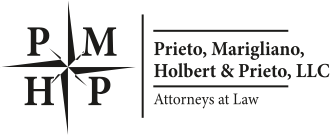As the US population ages and birthrates decline, we are beginning to see an increase in the number of geriatric people in nursing homes and assisted living communities. This puts seniors themselves in a vulnerable position and should cause some concern to the adult children and grandchildren of these patients, given the number of horror stories in the media today about nursing home abuse and nursing home neglect. Many of these horror stories were the backbone of many taking legal action for abuse in nursing homes.
If the unthinkable should happen to you or an aging parent or relative, do you know what your legal rights are? Although the details vary from one state to the next, the federal government provides a few guidelines. And as soon as you suspect nursing home abuse or neglect–even something that may seem minor, such as a bed sore — it is recommended that you get in touch with a nursing home abuse lawyer to discuss your legal options.
Standards of Care
Legally, a nursing home is a private institution that furnishes shelter, feeding and care for sick, aged, or infirm persons. They may or may not be required to furnish medical services, depending on the specific type of facility and local regulations governing the operation of such institutions. Under federal law, there are four categories:
- adult boarding services
- residential care facilities
- intermediate care facilities
- skilled nursing facilities
Generally, the first category provides only the most basic of services offered, limited primarily to room and board; “skilled nursing facilities” offer some medical services and are the most heavily regulated.
The Right to Know
Regardless of the level of care, any nursing home or senior facility is required to have written policies in place that outline procedures as pertaining to the prevention of nursing home abuse and nursing home neglect; this document must be provided to the resident prior to admission to the facility. Residents have the right to know about all services offered, the cost of those services, and how to contact state offices and advocacy groups should they have concerns or a need to file a complaint. In addition, residents who are sensory impaired or speak a language other than English must be accommodated.
The Right to Choose
Residents have the right to access their own medical records and participate in any decisions about treatment (including the right to refuse treatment). For cases in which a resident may not be mentally competent to make such decisions, these rights apply to the next-of-kin unless power of attorney has been granted to another designated party. (It is vitally important that this be detailed in a legal document ahead of time.) If you are not being allowed to take proactive action in your care or the care of your loved one, you should choose an attorney who specializes in the area of elder care law.
Mike Prieto may be that attorney. No other law firm in the State of Georgia has obtained more money through settlements and verdicts, including the single largest verdict in Georgia’s history, than PMHP Law, LLC.
PMHP Law, LLC. represents clients throughout Georgia and the Southeastern United States. To schedule a free consultation with a lawyer at our firm, call us at (404) 618 0082 or visit us online at www.eldercareabuselawyer.com.
Serving clients in:
Atlanta, Bartow, Cherokee, Cobb, Floyd, Fulton, Whitfield, Douglas, Polk, Chatham and all of Northwest Georgia, North Georgia, Central Georgia and South Georgia, as well as much of the Southeastern United States.
